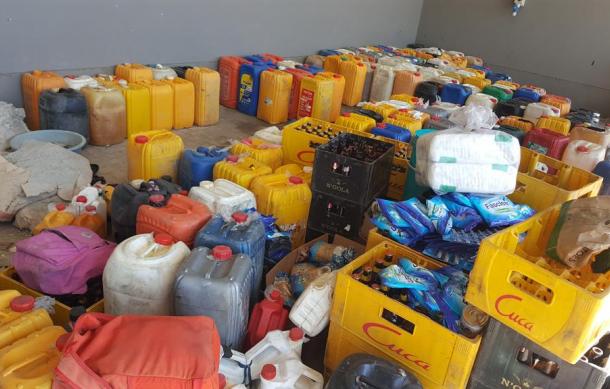
The smuggling of fuel at the Oshikango border is under control, at least for now, since the launch of the operation dubbed "Stop illegal smuggling and other contrabands."
The initiative is a joint operation between Namibia and Angola that was launched at the common border and is spearheaded by NamPol Inspector General, Lieutenant General Joseph Shikongo.
The operation, launched at the regional level, will be intensified from both sides with the aim of preventing cross-border crimes, which have been on the increase.
Since the launch of the operation, nine people who were found trading fuel illegally were arrested, three cars were impounded, and the owners are expected to pay a fine of N$20,000 before the vehicles are released.
Lieutenant-General Shikongo believes that if Namibian police continue to patrol the borders, their presence will deter fuel smugglers.
"I am just hoping, and I will continue to direct the region to ensure that this situation is dealt with on a daily basis, not periodically. You do it today, and tomorrow you allow it. We should not give a chance to people who are committing crimes; we should do it continuously, consistently, and persistently."
The police chief highlighted some of the common crimes at the Namibia/Angola borders.
"The colleagues from Angola are giving us some statistics of some people who are killed here stabbed with knives because of the money that they are carrying from Namibia; they also expressed concern about Katwitwi market, which attracts people to come and fill up there; yesterday we impounded three vehicles belonging to Namibians who were filling up vehicles in the open area."
Namibia Revenue Agency's Northern Regional Manager Susan Beukes, who was part of the delegation, explained what happens to the fuel that is confiscated from illegal traders.
"Normally, the fuel is confiscated; it is not detained; it is not resold; it is taken to the police with joint custody; previously, we used to take it to the Engine depot at Mines and Energy outside Ondangwa, where they would dispose of the fuel."
Beukes says the smuggled fuel sold on the street is more harmful to cars because it is mixed with other substances, and if it is used regularly, it could cause severe damage to engines.





